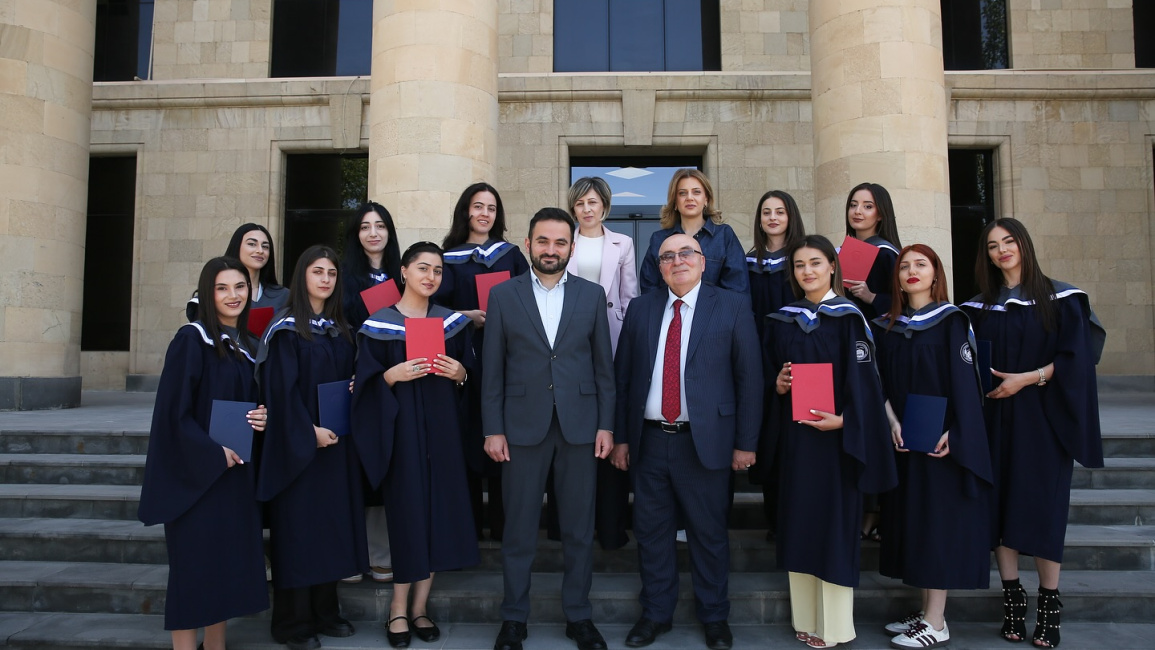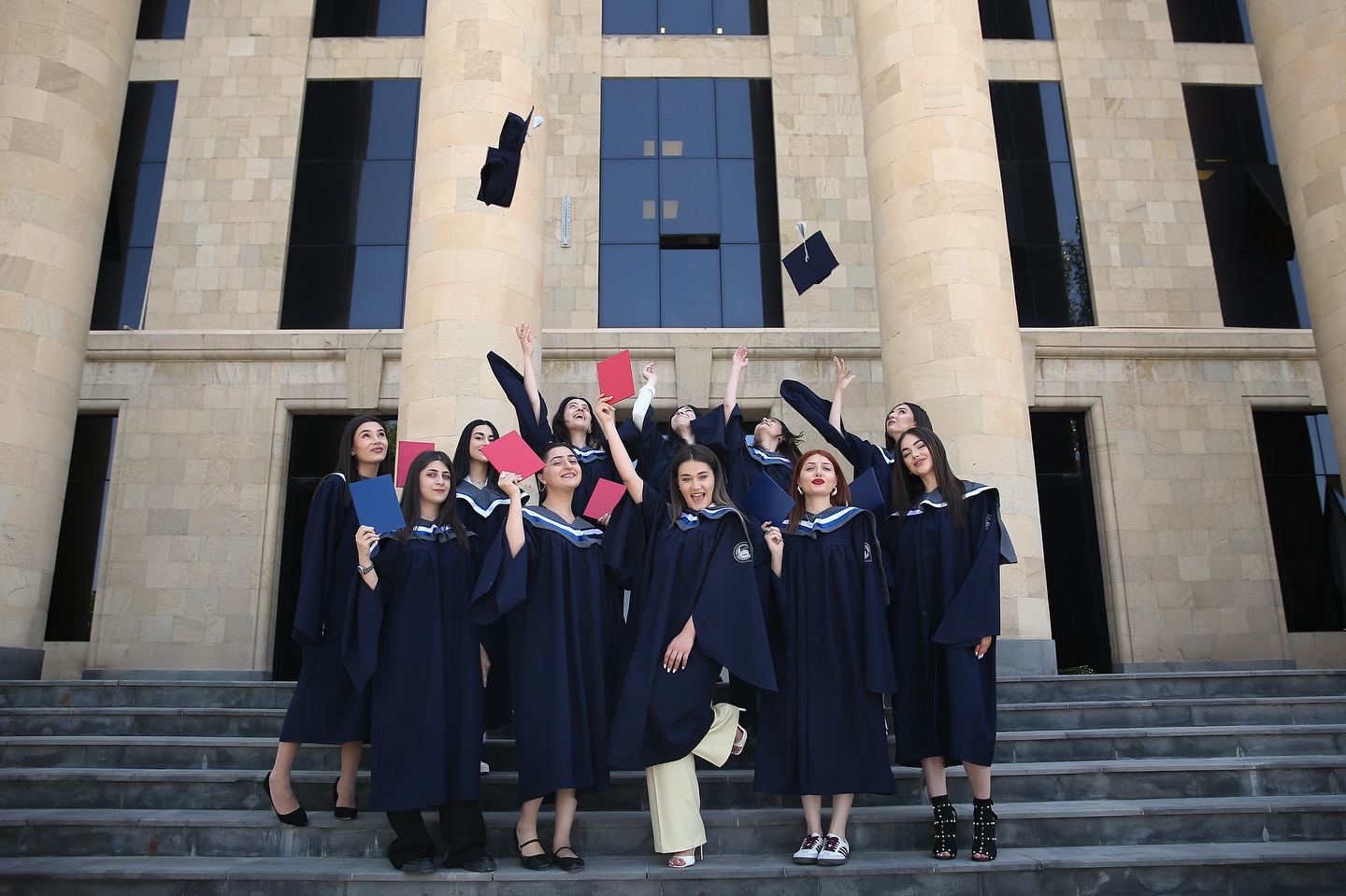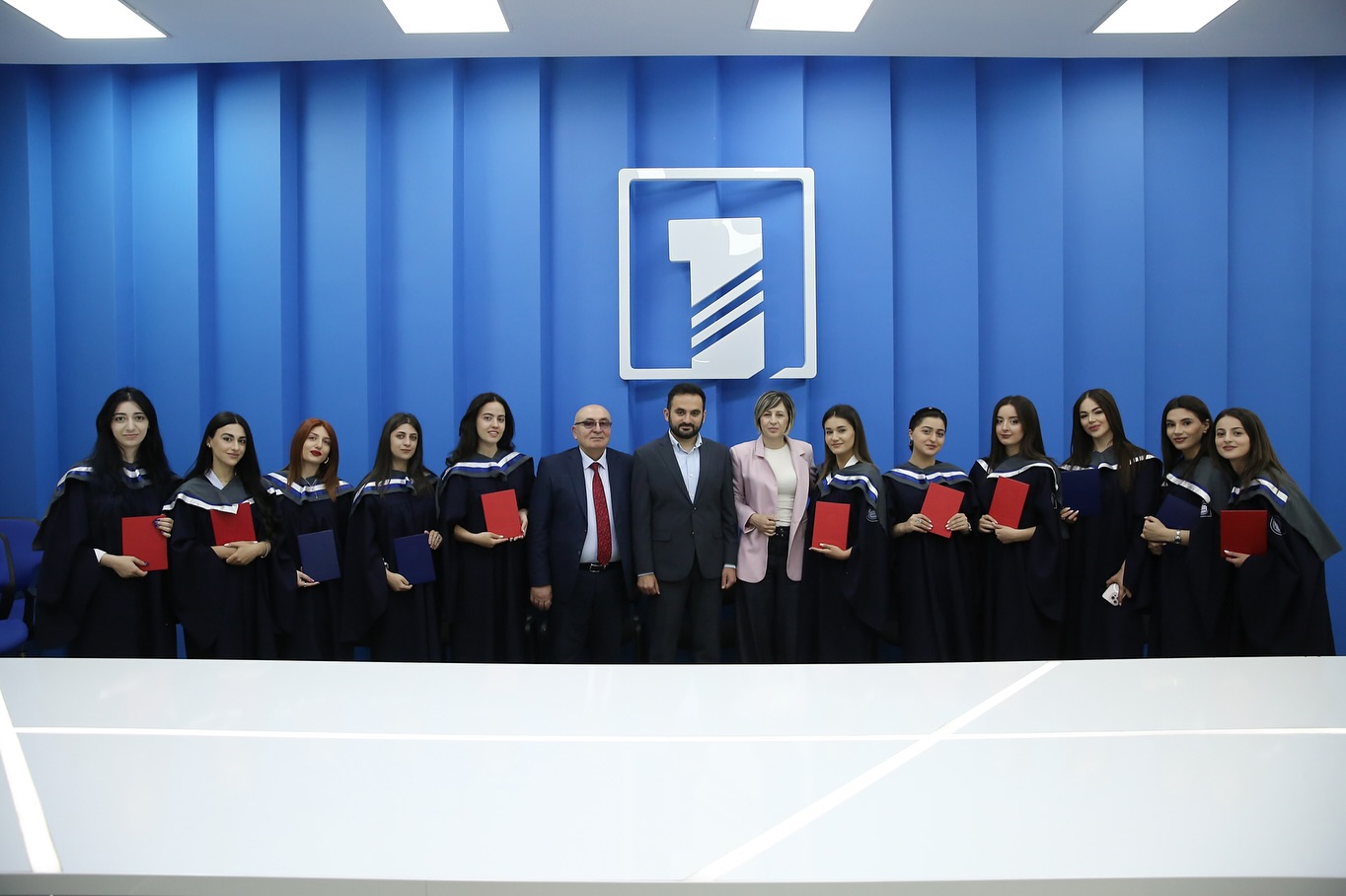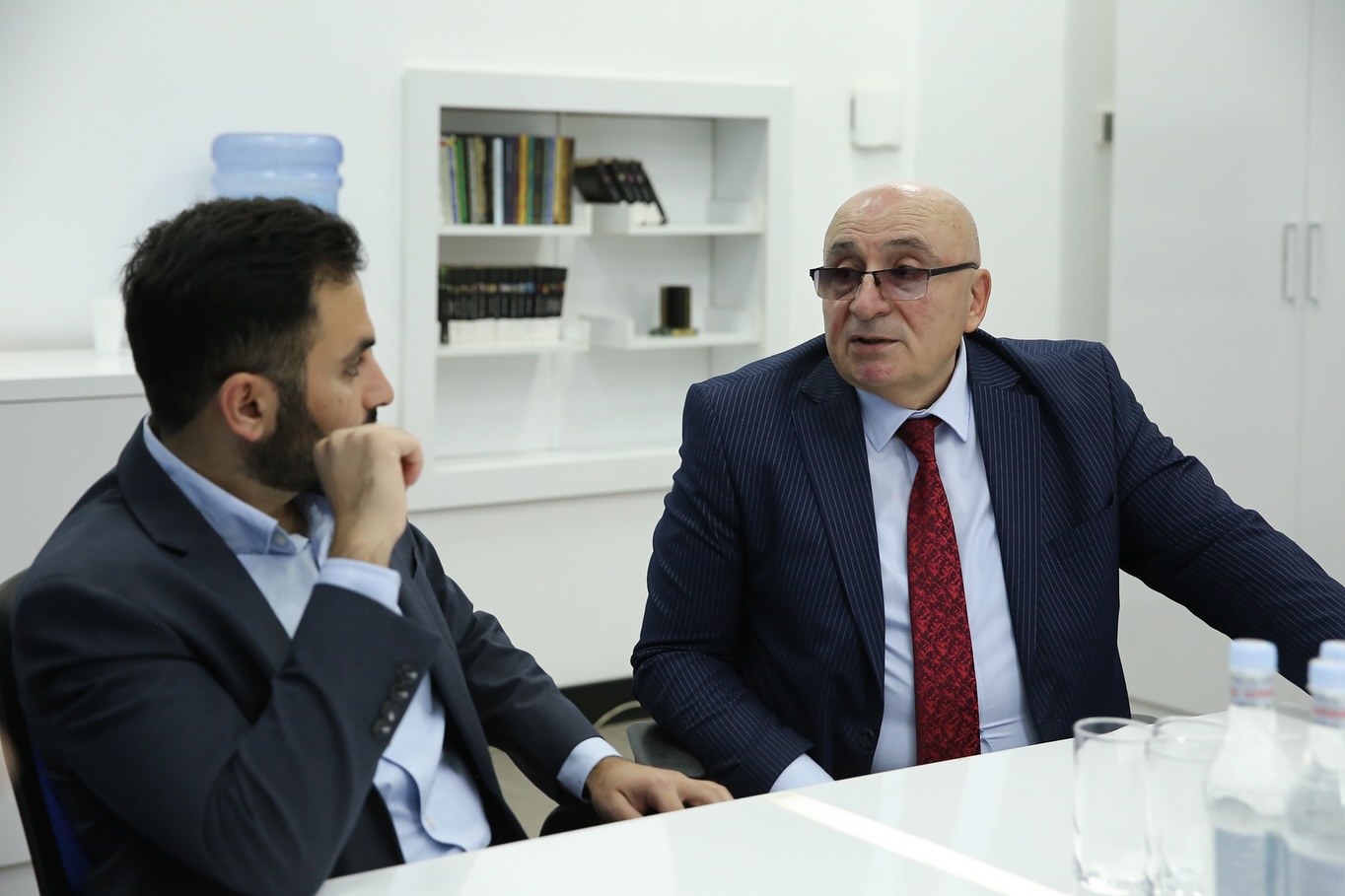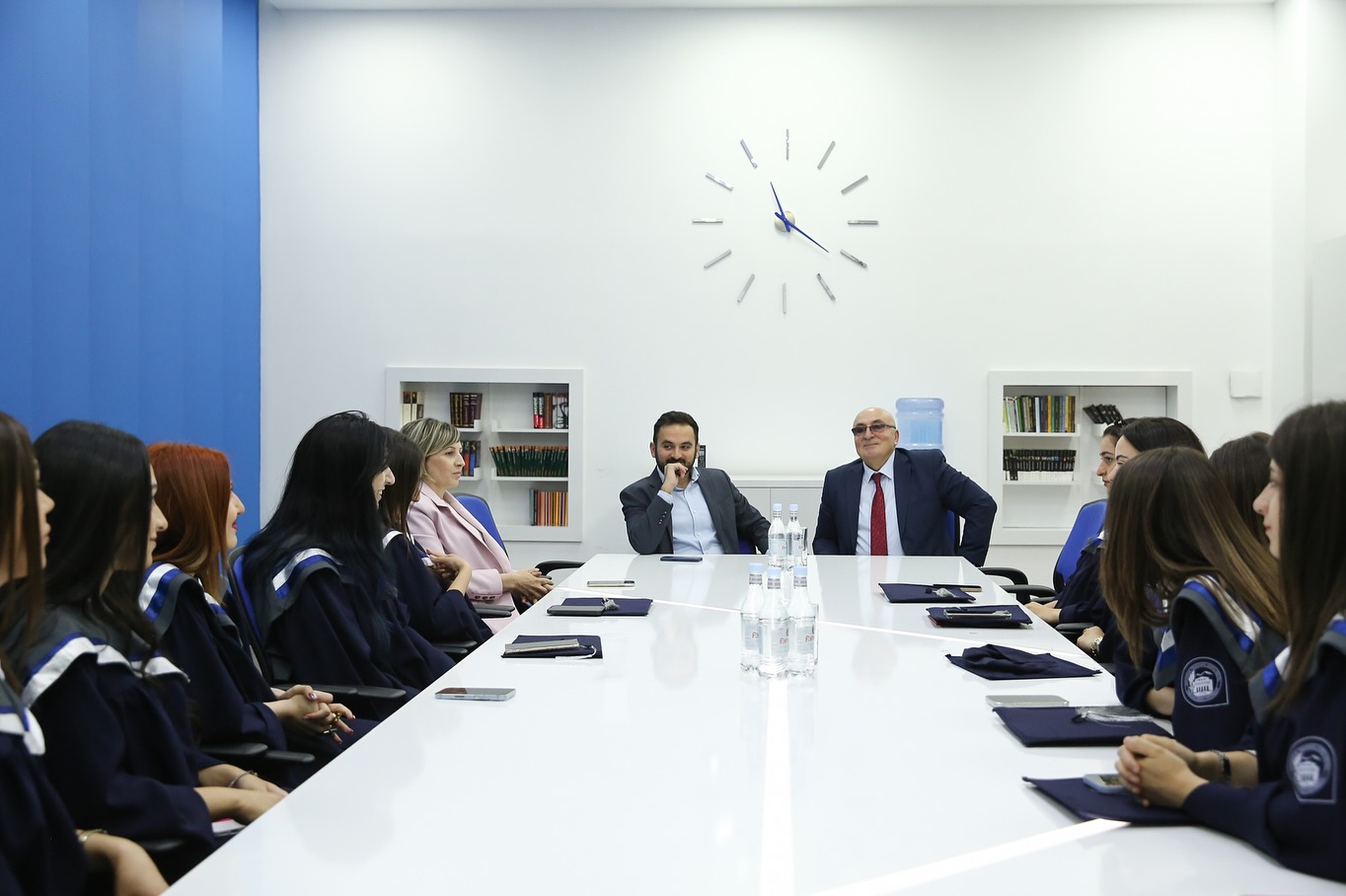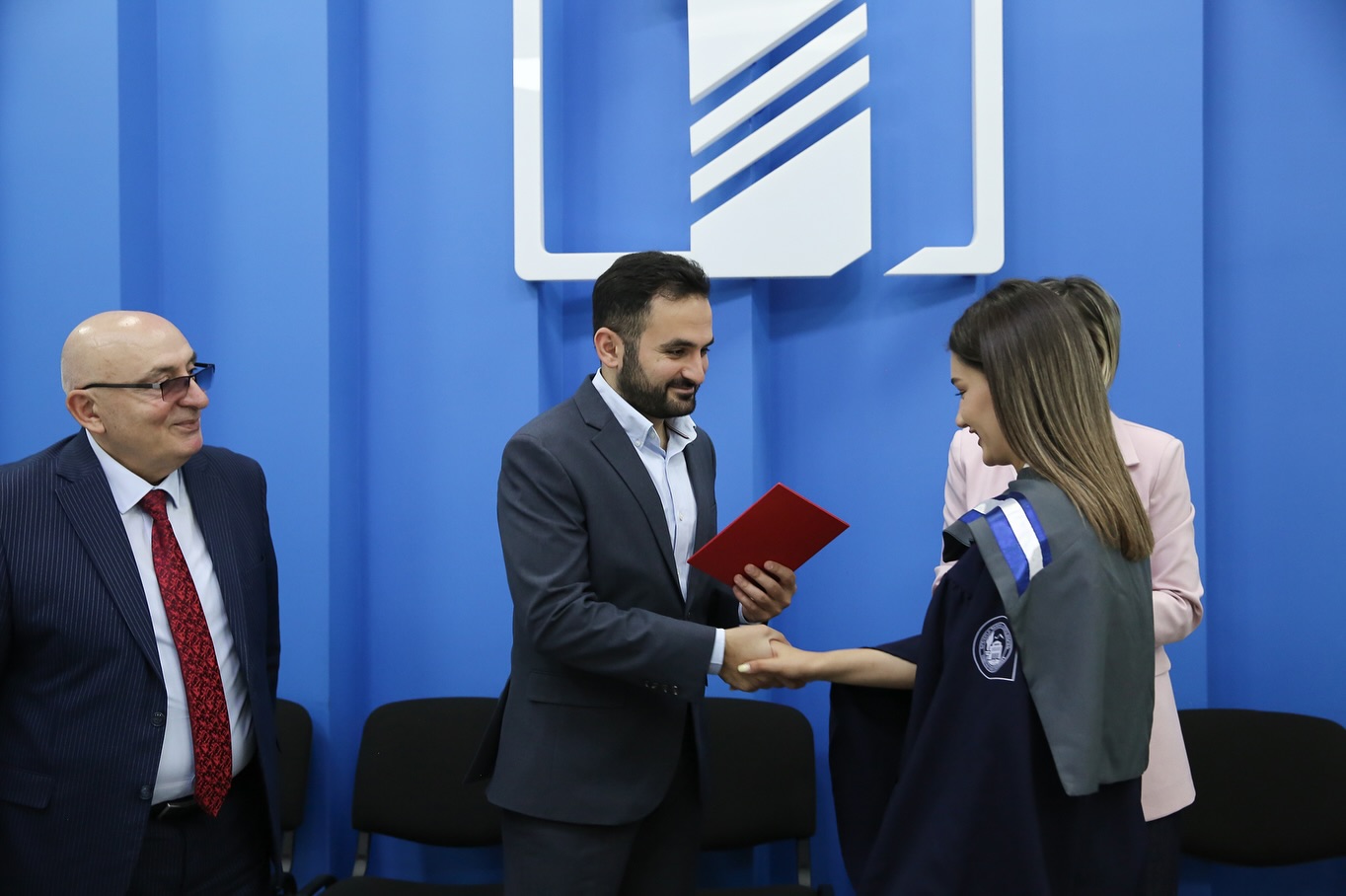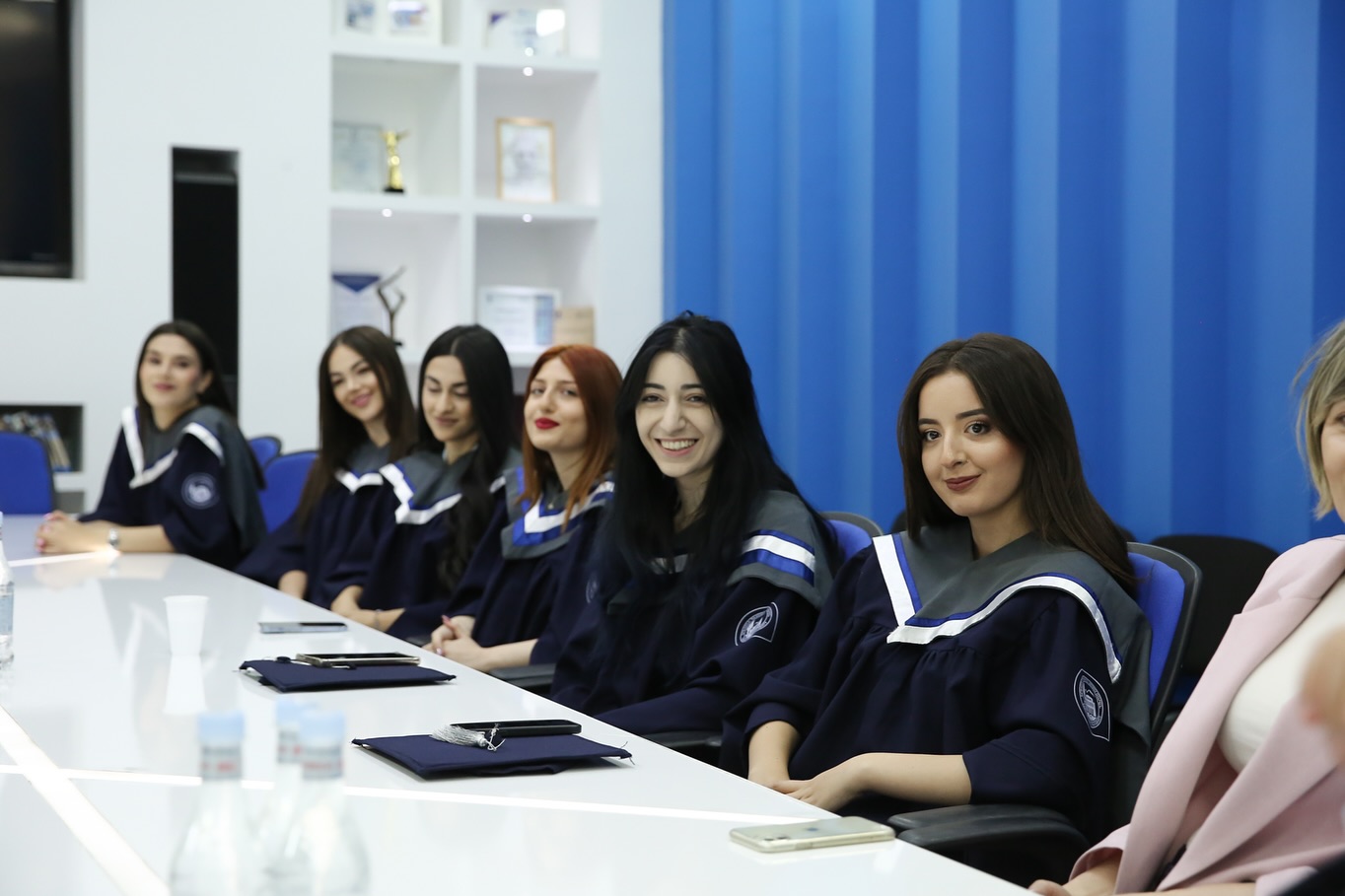Graduates of the "TV Journalism" joint master’s program, developed by the Faculty of Journalism at Yerevan State University in partnership with the Public TV Company of Armenia, have officially received their diplomas, earning the title of Master of Journalism.
Hovhannes Movsisyan, Executive Director of the Public TV Company of Armenia, congratulated the graduates and expressed confidence that they will apply the knowledge and skills gained throughout the program—skills developed with the direct involvement of experienced media professionals in both practical and research settings.
Dean of YSU Faculty of Journalism, Naghash Martirosyan, also extended his congratulations, wishing the graduates a successful and fulfilling professional journey. He emphasized the importance of the program’s hands-on, research-driven TV Lab, which aims to train journalists capable of working across both traditional and digital media platforms using modern industry standards.
"Reflecting on the second year of productive cooperation with the Public TV Company of Armenia, we can affirm that this partnership is opening new opportunities for strengthening university–labor market ties. We speak of the outcomes with pride, and of our future plans with hope and confidence. We look forward to the third academic year, starting on September 1, as a new chapter filled with opportunity and achievement," the dean stated.
One of the graduates, Liana Khachatryan, highlighted the program’s practical focus: "What made this master’s program unique was its emphasis on real-world experience. Throughout the year, we were actively involved in producing content for Public TV, collaborating with staff, and conducting interviews on the Aravot Luso set. These experiences gave us valuable insights and helped develop our professional skills."
The "TV Journalism" master’s program is designed as a practice-oriented educational model aimed at preparing versatile media professionals who can excel both in front of and behind the camera. It emphasizes the application of advanced journalistic techniques in both traditional television and digital formats.
During the one-year program, classes are held not only in university lecture halls but also in television studios and editorial offices. This structure allows students to develop the practical and analytical skills required for building successful careers in today’s fast-evolving, multi-platform media environment.
